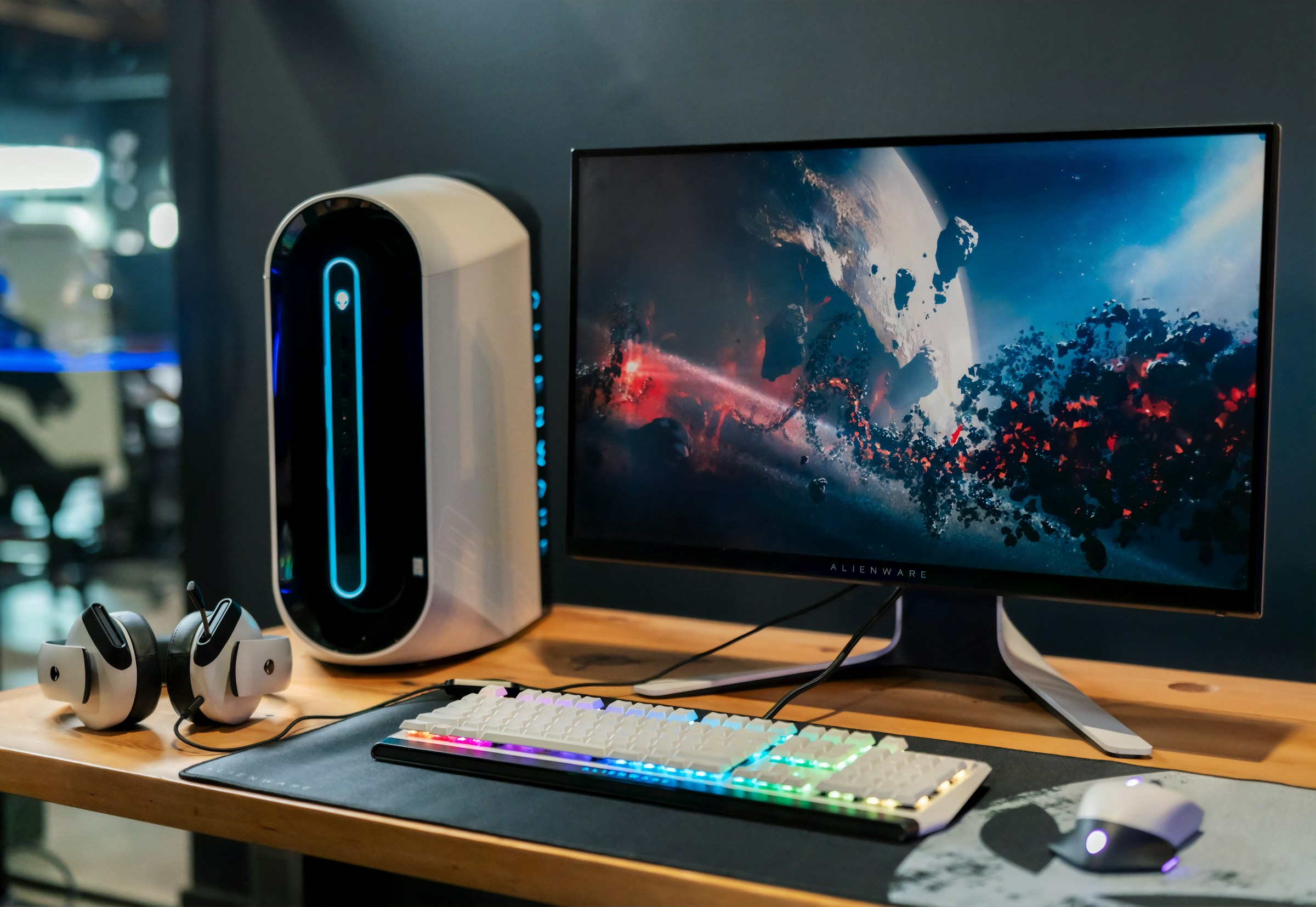Video game therapy is emerging as a transformative approach for enhancing motor skills in Parkinson’s patients. This innovative method combines rehabilitation techniques with engaging gameplay, making therapy not only effective but enjoyable. By harnessing the principles of neuroplasticity, video games provide a unique avenue for improving dexterity and coordination. Discover how this exciting intersection of technology and healthcare offers new hope and motivation for individuals battling the challenges of Parkinson’s disease.
Overview of Video Game Therapy
Video game therapy is an innovative approach that uses video games as a tool for rehabilitation and therapeutic practices. This method has gained traction due to its engaging nature, offering patients a more enjoyable way to participate in their recovery process. Video game therapy can be particularly beneficial for individuals with conditions such as Parkinson’s disease, where traditional therapies may not be as effective or motivating.
Additional reading : Is There a Correlation Between Vitamin B12 Deficiency and Neuropathy?
Historically, the concept of using video games in therapy has evolved alongside technological advancements. Initially, simple games were used for cognitive rehabilitation, but as technology progressed, more sophisticated games were developed. These games now offer tailored experiences that can address specific therapeutic needs, making them a valuable addition to conventional treatment plans.
The integration of technology in rehabilitation offers numerous benefits. For patients with Parkinson’s disease, video game therapy can improve motor skills, enhance cognitive function, and provide a sense of achievement. The interactive nature of video games encourages patients to remain engaged, often leading to better adherence to therapy regimens compared to traditional methods. Additionally, video games can be customized to suit individual needs, ensuring that therapy is both effective and enjoyable.
Topic to read : What Are the Latest NICE Guidelines for Managing Chronic Pain in the UK?
Overall, video game therapy represents a promising intersection of technology and healthcare, offering innovative solutions for rehabilitation challenges.
Mechanisms of Improvement in Motor Skills
Video game therapy leverages the power of neuroplasticity to enhance motor skills. Neuroplasticity refers to the brain’s ability to reorganise itself by forming new neural connections. This adaptability is crucial for recovery, particularly in conditions like Parkinson’s disease, where traditional therapies may fall short. Video games stimulate both cognitive and physical skills, encouraging the brain to adapt and improve motor functions.
Engaging Cognitive and Physical Skills
Video games are designed to be interactive and challenging, requiring players to use a combination of cognitive and physical skills. This dual engagement fosters an environment where patients can practice and refine their motor skills in a fun and motivating way. The repetitive nature of gameplay helps reinforce these skills, leading to gradual improvement over time.
Neuroplasticity and Motor Skill Enhancement
The role of neuroplasticity cannot be overstated in the context of video game therapy. As patients engage with games, their brains are constantly adapting, creating new pathways that can enhance motor skills. This process is particularly beneficial for those who struggle with traditional therapy methods, offering a more dynamic and responsive approach to rehabilitation.
Comparison with Traditional Therapy Methods
Compared to traditional therapy methods, video game therapy offers a more engaging and adaptable approach. While conventional therapies often focus on repetitive exercises, video games provide a varied and stimulating environment that can be tailored to individual needs, making therapy both effective and enjoyable.
Evidence Supporting Video Game Therapy
The efficacy of video game therapy is supported by a growing body of research studies. These studies highlight its potential to improve clinical outcomes, especially for patients with conditions like Parkinson’s disease. Researchers have conducted various clinical trials to assess the effectiveness of this innovative therapy.
Summary of Key Research Findings
A number of clinical trials have shown that video game therapy can significantly enhance motor skills and cognitive functions. For instance, studies have reported improvements in hand-eye coordination, balance, and overall motor performance in patients who engaged in video game therapy. These findings underscore the potential of video games as a therapeutic tool in rehabilitation.
Clinical Trials Specific to Parkinson’s Patients
Clinical trials focusing on Parkinson’s patients reveal promising results. Participants often experience improved motor skills and cognitive abilities after consistent use of video games tailored to their needs. These trials provide quantitative data that supports the integration of video game therapy in treatment plans for Parkinson’s disease.
Significance of Quantitative and Qualitative Data
Both quantitative and qualitative data are crucial in understanding the impact of video game therapy. Quantitative data offers measurable evidence of improvement, while qualitative data provides insights into patient experiences and satisfaction. Together, they paint a comprehensive picture of the therapy’s benefits.
Expert Opinions on Video Game Therapy
Video game therapy has garnered attention from experts across various fields, offering diverse professional insights into its application and benefits. Neurologists and rehabilitation specialists highlight the potential of video games in enhancing neuroplasticity, which is crucial for recovery in conditions like Parkinson’s disease. They emphasize the adaptability of video games in creating tailored therapeutic experiences that traditional methods may lack.
Perspectives from Occupational Therapists
Occupational therapists provide valuable perspectives on how video game therapy can be integrated into rehabilitation. They note that video games offer an interactive platform that can be customized to address specific motor and cognitive challenges faced by patients. This adaptability makes video game therapy a versatile tool in occupational therapy, providing patients with engaging and meaningful activities that promote recovery.
Importance of Interdisciplinary Collaboration
The success of video game therapy often hinges on interdisciplinary collaboration. By bringing together neurologists, occupational therapists, and other healthcare professionals, a comprehensive approach to rehabilitation can be achieved. This collaboration ensures that video game therapy is effectively integrated into treatment plans, maximizing its potential benefits for patients. Engaging multiple disciplines fosters innovation and enhances the overall therapeutic process, making video game therapy a promising addition to modern rehabilitation strategies.
Case Studies of Video Game Therapy in Action
Exploring case studies of video game therapy provides valuable insights into its practical application and effectiveness. These success stories highlight how this innovative therapy has transformed patient experiences and contributed to significant improvements in their conditions.
Detailed Examination of Specific Patient Cases
One notable case involves a patient with Parkinson’s disease who incorporated video game therapy into their rehabilitation routine. This individual engaged in games designed to enhance motor skills, resulting in noticeable improvements in hand-eye coordination and balance. The interactive nature of the games kept the patient engaged, leading to consistent participation and progress.
Outcomes and Improvements in Motor Skills
Patients often report enhanced motor skills as a direct outcome of video game therapy. For example, another case study documented a patient who experienced increased dexterity and agility after regularly using video games as part of their treatment plan. These improvements were not only measurable but also contributed to a better quality of life.
Personal Testimonials Highlighting the Therapeutic Journey
Personal testimonials from patients reveal the profound impact of video game therapy on their rehabilitation journey. Many express gratitude for the engaging and enjoyable nature of the therapy, which motivated them to adhere to their treatment plans. These patient experiences underscore the potential of video game therapy as a powerful tool in modern rehabilitation.
Recommended Video Games for Therapy
In the realm of therapeutic games, selecting the right game for physical rehabilitation is crucial. Popular video games like “Wii Fit,” “Just Dance,” and “Ring Fit Adventure” are often recommended for their engaging and interactive nature. These games are designed to encourage movement and coordination, making them effective rehabilitation tools.
Criteria for Selecting Appropriate Games
When considering game recommendations for therapy, it’s essential to evaluate the game’s ability to target specific rehabilitation needs. Look for games that:
- Provide clear instructions and feedback
- Offer adjustable difficulty levels
- Encourage repetitive movements to reinforce motor skills
These criteria ensure that therapeutic games can be tailored to individual needs, enhancing their effectiveness as rehabilitation tools.
Potential Benefits and Risks
The potential benefits of using video games for therapy include improved motivation, increased adherence to therapy routines, and enhanced motor skills. However, there are also risks to consider. Some games may lead to overexertion or strain if not used appropriately. It’s important to monitor the patient’s response to the game and adjust the intensity as needed to prevent any adverse effects.
By carefully selecting and monitoring the use of therapeutic games, patients can enjoy a more engaging and effective rehabilitation experience.
Implementation of Video Game Therapy in Clinical Settings
Integrating video game therapy into clinical settings requires strategic planning and collaboration. Healthcare providers need to identify suitable therapy programs where video games can complement traditional methods. This involves assessing patient needs and selecting games that align with therapeutic goals.
Strategies for Integration
To effectively incorporate video game therapy, clinicians should develop a structured plan. This includes selecting appropriate games, setting clear objectives, and determining how these games fit within existing rehabilitation programs. Tailoring game choices to patient demographics and conditions is essential for maximizing therapeutic outcomes.
Staff Training and Patient Engagement
Training staff is crucial for successful implementation. Healthcare professionals must understand the mechanics and therapeutic potential of video games. Workshops and training sessions can equip them with the necessary skills. Engaging patients is equally important; introducing games in a fun and motivational manner can enhance participation and adherence.
Challenges and Considerations
Healthcare providers may face challenges, such as budget constraints and technological limitations. It’s vital to consider the resources required for integrating video games into therapy programs. Additionally, evaluating patient progress and adjusting game difficulty levels are important to ensure the therapy remains effective and beneficial. By addressing these challenges, video game therapy can become a valuable component of modern healthcare integration.
Future Directions of Video Game Therapy
The future of video game therapy is promising, driven by innovations in technology. Emerging technologies such as Virtual Reality (VR) and Augmented Reality (AR) are set to revolutionise therapeutic practices. These technologies offer immersive experiences that can enhance the effectiveness of therapy by providing realistic and interactive environments for patients.
Emerging Technologies in Video Game Therapy
VR and AR are at the forefront of technological trends, offering new dimensions to video game therapy. VR can create fully immersive worlds that simulate real-life scenarios, aiding in motor skill rehabilitation. AR overlays digital information onto the real world, allowing patients to interact with their surroundings in novel ways. These technologies can make therapy more engaging and effective.
Anticipated Research and Development Trends
Future research is likely to focus on integrating these technologies into therapeutic frameworks. Anticipated trends include developing personalised therapy programs that adapt to individual patient needs. Research will also explore the broader applications of video game therapy beyond Parkinson’s disease, potentially benefiting conditions like stroke recovery and mental health.
Broader Applications
The potential for video game therapy extends beyond its current applications. By leveraging technological advancements, therapy can be tailored for diverse conditions, enhancing patient outcomes across various healthcare settings. This adaptability underscores the significance of continued innovation and research in the field.
Resources for Patients and Caregivers
Navigating the world of video game therapy can be daunting, but numerous support resources are available to assist both patients and caregivers. These resources provide valuable guidance and information, making the therapeutic journey smoother and more effective.
Finding Video Game Therapy Programs
Locating suitable video game therapy programs is crucial for effective rehabilitation. Many hospitals and rehabilitation centres offer these programs, often integrated into their existing therapy services. Additionally, online platforms provide access to virtual therapy sessions, allowing patients to participate from the comfort of their homes. Websites dedicated to healthcare innovations frequently list available programs and their benefits.
Educational Materials for Caregivers
Caregivers play a vital role in the therapeutic process. Access to comprehensive caregiver guides and patient education materials can significantly enhance their ability to support patients. These materials often include step-by-step instructions on implementing video game therapy, tips for monitoring progress, and advice on maintaining motivation.
Community Support and Online Forums
Engaging with community support and online forums can offer shared experiences and insights from others on similar journeys. These platforms provide a space for exchanging tips, sharing successes, and discussing challenges. Participation in such communities can foster a sense of belonging and encouragement, proving invaluable for both patients and caregivers.











